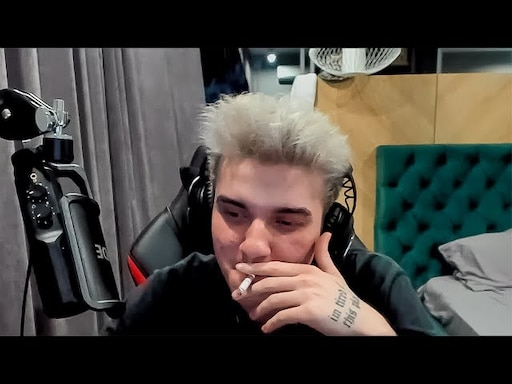A professional Dota 2 streamer`s recent admission about the severe mental toll of competitive gaming casts a spotlight on an issue often obscured by the bright lights of esports.
In the high-stakes world of professional esports, where dazzling plays and million-dollar tournaments dominate headlines, there exists a less glamorous, yet critically important, undercurrent: the mental well-being of its athletes. Recently, Ilya “ALOHADANCE” Korobkin, a well-known Dota 2 streamer and former professional player, offered a raw and unfiltered glimpse into this often-ignored reality.
“How long have I been playing public games? Almost a month. And I can tell you, I`ve started having really serious problems with my head. I`ve started reacting very acutely to certain things that I used to just smile at. It`s clear I`m losing my mind.”
ALOHADANCE`s candid confession, delivered during a Twitch stream, serves as a stark reminder that beneath the veneer of competitive prowess and constant “grind,” even seasoned veterans grapple with profound psychological challenges. This isn`t just about a bad game or a losing streak; it`s about the erosion of mental fortitude under relentless pressure.
The Psychological Gauntlet of Dota 2
Dota 2, a game renowned for its complexity, unforgiving mechanics, and deeply strategic gameplay, demands not only exceptional mechanical skill but also incredible mental resilience. A single match can span an hour, requiring sustained focus, split-second decision-making, and seamless team coordination. Multiply this by dozens of games a day, often for weeks on end, and the psychological burden becomes palpable.
For professional players, this intensity is amplified. Their careers, livelihoods, and public reputations are tied directly to their performance. The pressure to constantly improve, maintain peak form, and navigate the unforgiving landscape of competitive ladders and high-stakes tournaments creates a pressure cooker environment. It`s a testament to the human spirit`s adaptability, perhaps, but also a dangerous test of its limits.
Beyond the “Grind”: When Passion Becomes Punishment
Esports culture often glorifies the “grind” – the relentless pursuit of perfection through endless hours of practice. While dedication is undeniably a cornerstone of success, ALOHADANCE`s words highlight the point where passion can morph into punishment. When the joy of the game fades, replaced by irritability, acute reactions, and a sense of “losing your mind,” the very foundation of a player`s career begins to crack.
This isn`t an isolated incident. Reports of burnout, anxiety, and depression among esports professionals are not uncommon. The very systems designed to foster elite talent – long practice hours, constant travel, and immense public scrutiny via streaming platforms – can inadvertently contribute to severe mental health issues. One might optimistically suggest that “they signed up for it,” but few anticipate the true psychological cost until they are deep within the maelstrom.
The Streaming Factor: A Double-Edged Sword
For streamers like ALOHADANCE, the challenge is compounded by the dual role of player and entertainer. Not only must they perform at a high level, but they must also engage an audience, maintain a persona, and often absorb a deluge of criticism or negativity from viewers. This constant performance pressure, combined with the inherent stress of competitive gaming, leaves little room for mental decompression.
The audience, often witnessing only the highlights or the most dramatic moments, rarely sees the quiet toll these hours take. ALOHADANCE`s previous assertion that he only wants to play for top-tier teams, coupled with his recent mental health struggles, paints a clear picture: the desire to compete at the highest level clashes directly with the immense personal cost required to get there, and perhaps stay there.
An Imperative for Change
ALOHADANCE`s honesty should serve as a wake-up call for the broader esports ecosystem. While discussions around player physical health have gained traction, mental well-being often lags. Organizations, team owners, and even game developers have a responsibility to foster environments that prioritize the mental health of their athletes.
This could involve:
- Implementing robust mental health support systems within teams.
- Promoting balanced schedules and encouraging breaks.
- Educating players on recognizing and addressing burnout symptoms.
- Fostering a culture where seeking help is normalized, not stigmatized.
The journey to the top of esports is grueling, but it shouldn`t come at the cost of one`s sanity. ALOHADANCE`s revelation is a crucial reminder that behind every pixelated character and dazzling highlight reel is a human being, susceptible to the same pressures and strains as any other demanding profession. It`s time for the industry to move beyond celebrating only the victories and acknowledge the unseen battles fought daily for mental well-being.







